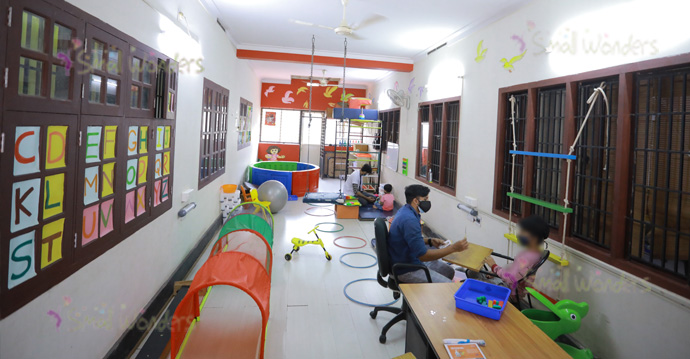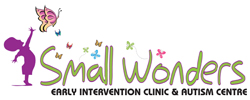Empower School
Empower school is catering students with various learning disabilities and is committed to respond to all appropriately to their individual learning needs and do their schooling with pride. We are no ordinary school - we understand and meet the diverse needs of the children.
Learning disabilities are problems that affect the brain’s ability to receive, process, analyze or store information. These problems can make it difficult for a child to learn as quickly as someone whoisn’t affected by learning disabilities.

Learning disabilities are often identified through a combination of intelligence testing, academic achievement testing, class room performance, social interaction and aptitude.
Dysgraphia is characterized by problems with writing. This disorder may cause a child to be tense and awkward when holding a pen or pencil, even to the extent of controlling his or her body. A child with very poor handwriting that he or she does not outgrow may have dysgraphia.
Signs of this disability include problems in understanding basic arithmetic concepts, such as fractions, number lines, and positive and negative numbers.
A person with dyspraxia has problems with motor tasks, such as hand-eye coordination, that can interfere with learning.
If a child’s cognitive ability is much higher than his or her academic performance, the student is often diagnosed with a learning disability.
We recommend early screening of all such students and to place all those students who are having difficulty into assessment based early intervention programs. Most of current research is focused on a treatment-oriented diagnostic process know as response to intervention (RTI)
We are proud to have Indian’s first and best learning center, EMPOWER SCHOOL, for children with learning disabilities
Empower school has a Methodology to ensure that students with learning disabilities can pursue their studies at various levels.
We aim at preparing students with learning disabilities to qualify at various evaluations & examinations like class X, class XII etc. through the curriculum which is appropriate for their learning needs. We aim to provide them a school environment where they can function to their maximum potential, thus preparing them to take up a career appropriate for them.
We believe that every child is unique in their talents; there cannot be a common yard stick. We intend to motivate them on their abilities and not to put anybody down on their disability. We envisage school with a focus on their abilities so as to overcome their disabilities. Our vision is to empower every child to achieve their inborn potential.
An overriding philosophy of our programme is to relate to our students in a manner that acknowledges their worth as human beings, that respects and enhances their dignity and that reflects to society, their positive attitude learning potential and individuality.
This is achieved by teachers who will use the latest and state-of-the-art practices in the education of students with learning abilities. In achieving this objective, it is recognized that these students display varying and distinctly different skills and areas of needed development that require a comprehensive approach to classroom instruction. Students classified as learning disabled, typically exhibit a wide range of academic and social abilities and needs. And in response, teachers will use a wide variety of teaching and evaluation strategies in our class rooms to suit and meet those needs.
Empower school follows a liberal curriculum which promotes alternative learning from NIOS, under Ministry of Human Resource Development, Govt. of India. The certification is recognized as eligibility for admission to higher studies by Institutions and Universities.
We offer National Board Examination at two levels: Secondary and Higher Secondary. The Secondary level is equivalent to ICSE, CBSE, SSLC and other National or State Std X Board Examinations. The Higher Secondary level is equivalent to Standard XII Board Examinations.
The curriculum followed by Empower School will benefit students from all walks of life. Students are required to study a minimum of 5 subjects and a maximum of 7 subjects. Students have much flexibility in selecting the areas as there is a wide range of subjects on offer.
Our academic curriculum is supported by various therapeutic measures which are necessary to overcome the difficulties of every individual child. Above all, this is done in a classroom environment which is child-centered and child friendly unlike teacher-centered traditional schools.
Imagine the difference it could make if we focused on the strengths of people with Learning Disabilities instead of their weaknesses?

